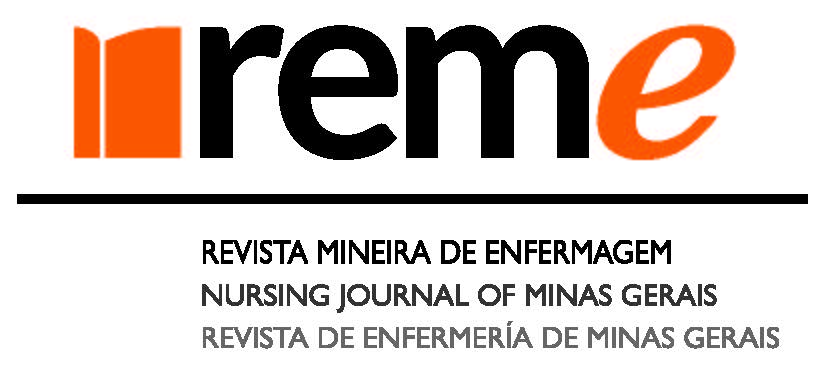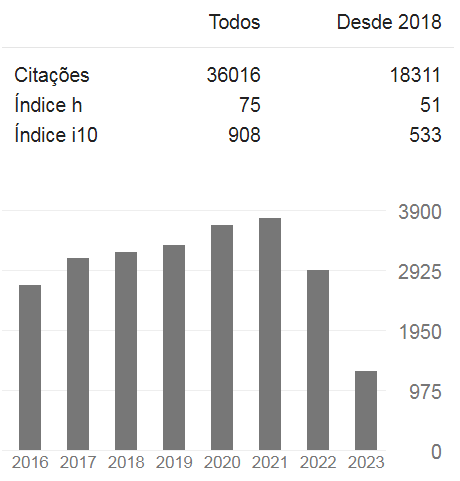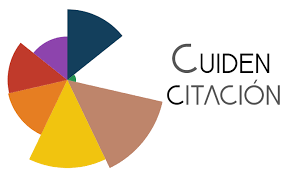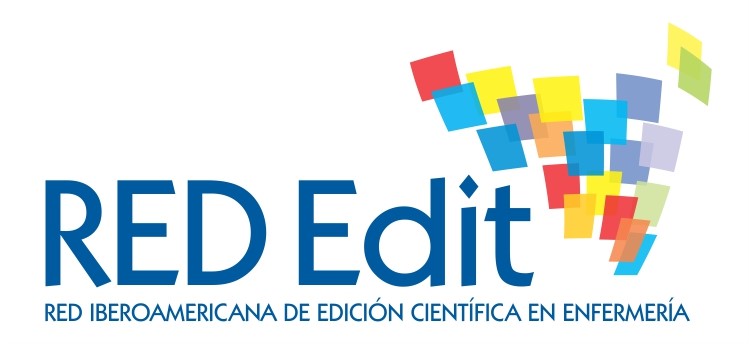Tecnologías digitales para el autocuidado de personas con diabetes mellitus tipo 2
Revisión integradora
DOI:
https://doi.org/10.35699/reme.v28i1.37531Palabras clave:
Diabetes Mellitus Tipo 2, Tecnología Digital, AutocuidadoResumen
Objetivo: verificar el efecto de las tecnologías digitales (TD) en la promoción del autocuidado en personas con diabetes mellitus tipo 2 (DM2). Método: revisión integrativa de la literatura realizada en noviembre de 2021, utilizando las bases de datos: Medline vía PubMed, Lilacs, BDENF, IBECS, vía Biblioteca Virtual en Salud, Embase y Web of Science. Se incluyeron estudios primarios realizados a través de Ensayo Clínico Aleatorizado (ECR) que probaron el efecto de la tecnología digital en la promoción del autocuidado en personas con diabetes mellitus tipo 2, publicados en portugués, inglés y español, sin restricción en cuanto al año de publicación. Resultados: se incluyeron 08 artículos. Se probaron diferentes tecnologías digitales, con fundamentos teóricos variados. El lugar predominante de realización del estudio fue la Atención Primaria. En cuanto a los tipos de tecnología, se utilizaron plataformas, aplicaciones, programas y software, con contenido relacionado con el estilo de vida (hábitos alimentarios y actividad física), control del peso, medicación, bienestar emocional y apoyo social. En cuanto al efecto de las TD, se detectó la autogestión de la ingesta de alimentos saludables, el monitoreo de la glucosa, una mejor adhesión a la medicación, el seguimiento del Índice de Masa Corporal (IMC) y cambios positivos en el control de la dieta y el peso. El estudio también demostró resultados amplios en cuanto al objetivo, como la reducción de la HbA1c y la mejora en la calidad de vida. Conclusión: los estudios presentaron fundamentos teóricos sólidos para lograr cambios conductuales y clínicos, teniendo en cuenta el contexto social de las personas con DM2, además de proporcionar mejoras en el autocuidado y la calidad de vida.
Descargas
Citas
Sociedade Brasileira de Diabetes. Diretrizes SBD 2023. São Paulo: Editora Clannad; 2023[citado em 2023 maio 15]. Disponível em: https://diretriz.diabetes.org.br/
Torres HC, Pereira FRL, Alexandre RL. Avaliação das ações educativas na promoção do autogerenciamento dos cuidados em diabetes mellitus tipo 2. Rev Esc Enferm USP [Internet]. 2011[citado em 2023 maio 23];45(5):1-6. Disponível em: https://www.scielo.br/j/reeusp/a/PnvTdkyt7SymWBYfx9Kfb7B/?format=pdf&lang=pt
Introduction: Standards of Medical Care in Diabetes-2019. Diab Care [Internet]. 2019 [citado em 2021 nov. 21];42(Suppl 1):S1-S2. Disponível em: https://pubmed.ncbi.nlm.nih.gov/30559224/
Baptista DR, Wiens A, Pontarolo R, Regis L, Reis WC, Correr CJ. The chronic care model for type 2 diabetes: a systematic review. Diabetol Metab Syndr [Internet]. 2016 [citado em 2021 nov. 5];8:7. Disponível em: https://dmsjournal.biomedcentral.com/articles/10.1186/s13098-015-0119-z
Galvão MTRL, Janeiro JMSV. O autocuidado em enfermagem: autogestão, automonitorização e gestão sintomática como conceitos relacionados. REME - Rev Min Enferm [Internet]. 2013[citado em 2021 nov. 12];17(1):225-30. Disponível em: http://www.reme.org.br/artigo/detalhes/593
Narasimhan M, Kapila M. Implications of self-care for health service provision. Bull World Health Organ [Internet]. 2019[citado em 2021 nov. 12];97(2):76-76A. Disponível em: https://www.ncbi.nlm.nih.gov/pmc/articles/PMC6357575/
Kebede MM, Pischke CR. Popular Diabetes Apps and the Impact of Diabetes App Use on Self-Care Behaviour: A Survey Among the Digital Community of Persons With Diab Soc Media Front Endocrinol [Internet]. 2019[citado em 2021 nov. 21];10(135):1-14. Disponível em: https://pubmed.ncbi.nlm.nih.gov/30881349/
Cui M, Wu X, Mao J, Wang X, Nie M. T2DM Self-Management via Smartphone Applications: A Systematic Review and Meta-Analysis. PLoS One [Internet]. 2016 [citado em 2021 nov. 21];18;11(11):e0166718. Disponível em: https://pubmed.ncbi.nlm.nih.gov/27861583/
Elnaggar A, Park VT, Lee SJ, Bender M, Siegmund LA, Park LG. Patients’ Use of Social Media for Diabetes Self-Care: Systematic Review. J Med Internet Res [Internet]. 2020[citado em 2021 nov. 15];22(4):e14209. Disponível em: https://www.jmir.org/2020/4/e14209/PDF
Zarkogianni K, Litsa E, Mitsis K, Wu PY, Kaddi CD, Cheng CW, et al. A review of emerging technologies for the management of diabetes mellitus. IEEE Trans Biomed Eng [Internet]. 2015[citado em 2021 nov. 12];62(12):2735-49. Disponível em: https://pubmed.ncbi.nlm.nih.gov/26292334/
Riazi H, Larijani B, Langarizadeh M, Shahmoradi L. Managing diabetes mellitus using information technology: a systematic review. J Diabetes Metab Disord [Internet]. 2015[citado em 2021 nov. 13];14(49):1-9. Disponível em: https://pubmed.ncbi.nlm.nih.gov/26075190/
Sustainable Development Goals. Sustainable development knowledge platform. [citado em 2023 jun. 23]. Disponível em: https://sustainabledevelopment.un.org/?menu=1300#
Park S, Kim B. Readiness for utilizing digital intervention: Patterns of internet use among older adults with diabetes. Prim Care Diabetes [Internet]. 2020 [citado em 2021 nov. 15];14(6):692-7. Disponível em: https://pubmed.ncbi.nlm.nih.gov/32839128/
Gong E, Zhang Z, Jin X, Liu Y, Zhong L, Wu Y, et al. Quality, functionality, and features of chinese mobile apps fordiabetes self-management: systematic search and evaluation of mobile apps. JMIR Mhealth Uhealth [Internet]. 2020[citado em 2021 nov. 12];7;8(4):e14836. Disponível em: https://mhealth.jmir.org/2020/4/e14836/
Baptista S, Trawley S, Pouwer F, Oldenburg B, Wadley G, Speight J. What do adults with type 2 diabetes want from the 'perfect' app? Results from thesecond diabetes miles: Australia (MILES-2) study. Diabetes Technol Ther. [Internet]. 2019[citado em 2023 nov. 10];21(7):393–9. Disponível em: https://pubmed.ncbi.nlm.nih.gov/31166804/
Aminuddin H, Jiao N, Jiang Y, Hong J, Wang W. Effectiveness of smartphone-based self-management interventions on self-efficacy, self-careactivities, health-related quality of life and clinical outcomes in patients with type 2 diabetes: a systematic review and meta-analysis. Int J Nurs Stud [Internet]. 2019[citado em 2021 nov. 12]; 8:103286. Disponível em: https://pubmed.ncbi.nlm.nih.gov/30827741/
Wu X, Guo X, Zhang Z. The efficacy of mobile phone apps for lifestyle modification in diabetes: systematic review and meta-analysis. JMIR MhealthUhealth [Internet]. 2019[citado em 2021 nov. 13];15;7(1):e12297. Disponível em: https://mhealth.jmir.org/2019/1/e12297/
Shen Y, Wang F, Zhang X, Zhu X, Sun Q, Fisher E, et al. Effectiveness of internet-based interventions on glycemic control in patients with type 2diabetes: meta-analysis of randomized controlled trials. J Med Internet Res [Internet]. 2018[citado em 2023 nov. 10];7;20(5):e172. Disponível em: https://www.jmir.org/2018/5/e172/
Whittemore R, Knafl K. The integrative review: updated methodology. J Adv Nurs [Internet]. 2005[citado em 2023 nov. 12];52(5):546-3. Disponível em: https://pubmed.ncbi.nlm.nih.gov/16268861/
Page MJ, Moher D, Bossuyt PM, Boutron I, Hoffmann TC, Mulrow CD, et al. PRISMA 2020 explanation and elaboration: updated guidance and exemplars for reporting systematic reviews. BMJ [Internet]. 2021[citado em 2021 nov. 5];29;372:n160. Disponível em: https://pubmed.ncbi.nlm.nih.gov/33781993/
Lockwood C, Porrit K, Munn Z, Rittenmeyer L, Salmond S, Bjerrum M, et al. Chapter 2: Systematic reviews of qualitative evidence. JBI Reviewer's Manual. Adelaide: JBI; 2017[citado em 2021 nov. 12]. Disponível em: https://reviewersmanual.joannabriggs.org/
Galvão CM. Niveis de evidência. Acta Paul Enferm [Internet]. 2006[citado em 2021 nov. 23];19(2):5-5. Disponivel em: http://www.scielo.br/scielo.php?script=sci_arttext&pid=S0103-21002006000200001&lng=pt&tlng=pt
Ouzzani M, Hammady H, Fedorowicz Z, Elmagarmid A. Rayyan-a web and mobile app for systematic reviews. Syst Rev [Internet]. 2016[citado em 2021 nov. 5];5;5(210):1-10. Disponível em: https://pubmed.ncbi.nlm.nih.gov/27919275/
Marziale MHP. Instrumento para recolección de datos revisión integrativa. São Paulo: Redenso; 2015[citado em 2023 jan. 12]. Disponível em: http://gruposdepesquisa.eerp.usp.br/sites/redenso/wp-content/uploads/sites/9/2019/09/Instrumiento_revision_litetarura_RedENSO_2015.pdf Spanish
Dobson R, Whittaker R, Jiang Y, Maddison R, Shepherd M, McNamara C, et al. Effectiveness of text message based, diabetes self management support programme (SMS4BG): two arm, parallel randomised controlled trial. BMJ [Internet]. 2016[citado em 2021 nov. 15];17(361):k1959. Disponível em: https://pubmed.ncbi.nlm.nih.gov/29773539/
Gong E, Baptista S. My Diabetes Coach, a Mobile App–Based Interactive Conversational Agent to Support Type 2 Diabetes Self-Management: Randomized Effectiveness-Implementation Trial. J Med Internet Res [Internet]. 2020[citado em 2021 nov. 13];22(11):e20322. Disponível em: https://pubmed.ncbi.nlm.nih.gov/33151154/
McLeod M, Stanley J, Signal V, Stairmand J, Thompson D, Henderson K, et al. Impact of a comprehensive digital health programme on HbA1c and weight after 12 months for people with diabetes and prediabetes: a randomised controlled trial. Diabetol [Internet]. 2020[citado em 2021 nov. 10];63:2559-70. Disponível em: https://pubmed.ncbi.nlm.nih.gov/32886192/
Oberg U, Isaksson U, Jutterrstrom L, Orre C, Hornsten A. Person-Centered Interactive Self-Management Support in Primary Health Care for People with Type 2 Diabetes: Protocol for a Randomized Controlled Trial. JMIR Res Protoc [Internet]. 2019[citado em 2021 nov. 21];8(4):e10250. Disponível em: https://www.ncbi.nlm.nih.gov/pmc/articles/PMC6475816/
Sevick MA, Zickmund S, Korytkowski M, Piraino B, Sereika S, Mihalko S, et al. Design, feasibility, and acceptability of an intervention using personal digital assistant-based self-monitoring in managing type 2 diabetes. Contemp Clin Trials [Internet]. 2008[citado em 2021 nov. 12];29(3):396-409. Disponível em: https://pubmed.ncbi.nlm.nih.gov/17997364/
Koot D, Goh PSC, Lim RSM, Tian Y, Yau TY, Tan NC, et al. Mobile Lifestyle Management Program (GlycoLeap) for People With Type 2 Diabetes: Single-Arm Feasibility Study. JMIR Mhealth Uhealth [Internet]. 2019[citado em 2021 nov. 12];7(5):e12965. Disponível em: https://pubmed.ncbi.nlm.nih.gov/31127720/
Li J, Parrot S, Sweeting M, Farmer A, Ross J, Dack C, et al. Cost-Effectiveness of Facilitated Access to a Self-Management Website, Compared to Usual Care, for Patients With Type 2 Diabetes (HeLP-Diabetes): Randomized Controlled Trial. J Med Internet Res [Internet]. 2018[citado em 2021 nov. 12];20(6):e201. Disponível em: https://pubmed.ncbi.nlm.nih.gov/29884608/
Kleinman NJ, Shah A, Shah S, Phatak S, Viswanathan V. Improved Medication Adherence and Frequency of Blood Glucose Self-Testing Using an m-Health Platform Versus Usual Care in a Multisite Randomized Clinical Trial Among People with Type 2 Diabetes in India. Telemed J E Health [Internet]. 2017[citado em 2021 nov. 12];23(9):733-40. Disponível em: https://pubmed.ncbi.nlm.nih.gov/28328396/
Greenwood DA, Gee PM, Fatkin KJ, Peeples M. A Systematic Review of Reviews Evaluating Technology-Enabled Diabetes SelfManagement Education and Support. J Diabetes Sci Technol [Internet]. 2017[citado em 5 nov. 2021];11(5):1015-27. Disponível em: https://pubmed.ncbi.nlm.nih.gov/28560898/
Aguila IP, López LV, Robles MAVG, Ângulo FA, Peña JEL. Multimedia education to support management of type 2 diabetes patients. A quasi-experimental study [La educación multimedia como apoyo en el manejo de pacientes con diabetes tipo 2. Estudio cuasi experimental]. Cir Cir [Internet]. 2018[citado em 2021 nov. 12];86(5). Disponível em: https://www.researchgate.net/publication/337686558_Multimedia_education_to_support_management_of_type_2_diabetes_patients_A_quasi-experimental_study
Bandura A. Self-efficay: Toward a Unifying Theory of Behavioral Change. Psychological Review [Internet]. 1977[citado em 2023 abr. 12];84(2):191-215. Disponível em: http://psycnet.apa.org/fulltext/1977-25733-001.pdf
» http://psycnet.apa.org/fulltext/1977-25733-001.pdf
Bandura A, Azzi RG, Polydoro A. Teoria Social Cognitiva: conceitos básicos. Porto Alegre: Artmed; 2008.
Snetselaar LG. Intervenção: aconselhamento para mudança. In: Mahan LK, Escott-Stump S. Alimentos, nutrição e dietoterapia. 10ª ed. Rio de Janeiro: Elsevier; 2010. 489-505p.
Kavookjian J, Berger BA, Grimley DM, Villaume WA, Anderson HM, Barker KN. Patient decision making: Strategies for diabetes diet adherence intervention. Res Soc Adm Pharm [Internet]. 2005[citado em 2021 nov. 13];1(1):389-407. Disponível em: https://pubmed.ncbi.nlm.nih.gov/17138486/
Souza JV, Ferreira MA, Andrade JIA, Calixto AVD, Lira RC. Tecnologias educacionais desenvolvidas para o cuidado ao paciente diabético: revisão integrativa da literatura. Rev Eletrônica Acervo Saúde [Internet]. 2021[citado em 2021 nov. 12];13(5):e7014. Disponível em: https://www.researchgate.net/publication/351321069_Tecnologias_educacionais_desenvolvidas_para_o_cuidado_ao_paciente_diabetico_revisao_integrativa_da_literatura
Sociedade Brasileira de Diabetes. Diretrizes da Sociedade Brasileira de Diabetes (2019-2020). São Paulo: Editora Clannad; 2019[citado em 2023 maio 17]. Disponível em: http://www.saude.ba.gov.br/wp-content/uploads/2020/02/Diretrizes-Sociedade-Brasileira-de-Diabetes-2019-2020.pdf
Abu-Saad K, Murad H, Barid R, Olmer L, Ziv A, Younis-Zeidan N, et al. Development and Efficacy of an Electronic, Culturally Adapted Lifestyle Counseling Tool for Improving Diabetes-Related Dietary Knowledge: Randomized Controlled Trial Among Ethnic Minority Adults with Type 2 Diabetes Mellitus. J Med Internet Res [Internet]. 2019[citado em 2021 nov. 12];21(10):e1367. Disponível em: https://pubmed.ncbi.nlm.nih.gov/31621640/
Barbosa L, Borges PCP, Lemos SS, Cesarino CB. Evaluation of group educational intervention for diabetics receiving care at teaching clinic. Rev Enferm UERJ [Internet]. 2016[citado em 2021 nov. 13];24(2):e4968. Disponível em: https://www.e-publicacoes.uerj.br/index.php/enfermagemuerj/article/view/4968/23128
Adu MD, Malabu UH, Malau-Aduli AEO, Drovandi A, Malau-Aduli BS. User Retention and Engagement with a Mobile App Intervention to Support Self-Management in Australians With Type 1 or Type 2 Diabetes (My Care Hub): Mixed Methods Study. JMIR Mhealth Uhealth [Internet]. 2020[citado em 2021 nov. 17];8(6):e17802. Disponível em: https://pubmed.ncbi.nlm.nih.gov/32525491/
Stratton IM, Adler AI, Neil HAW, Matthews DR, Manley SE, Cull CA, et al. Association of glycaemia with macrovascular and microvascular complications of type 2 diabetes (UKPDS 35): prospective observational study. BMJ [Internet]. 2000[citado em 2021 nov. 15];321:405-12. Disponível em: https://pubmed.ncbi.nlm.nih.gov/10938048/
Corrêa K, Gouvêa GR, Silva MAV, Possobon RF, Barbosa LFLN, Pereira AC, et al. Quality of life and characteristics of diabetic patients. Ciênc Saúde Colet [Internet]. 2017[citado em 2021 nov. 15];22(3):921-30. Disponível em: https://pubmed.ncbi.nlm.nih.gov/283009
Archivos adicionales
Publicado
Cómo citar
Número
Sección
Licencia
Derechos de autor 2024 REME-Revista Mineira de Enfermagem

Esta obra está bajo una licencia internacional Creative Commons Atribución 4.0.






































